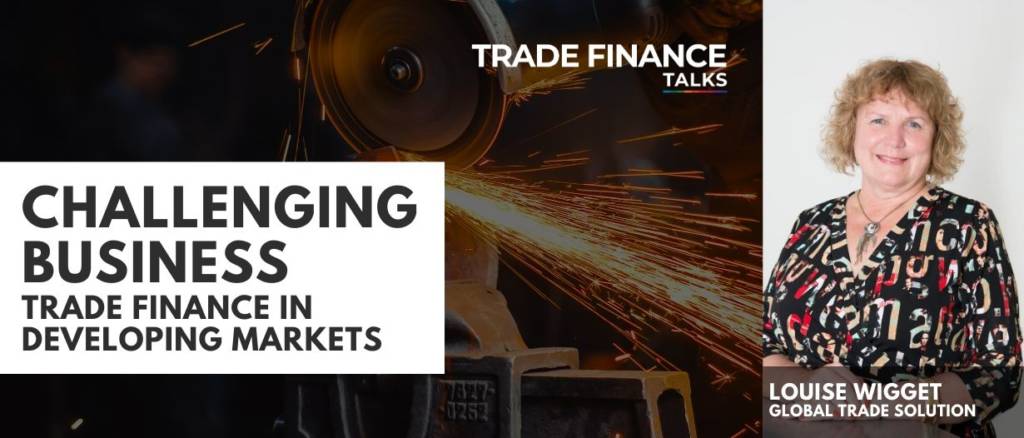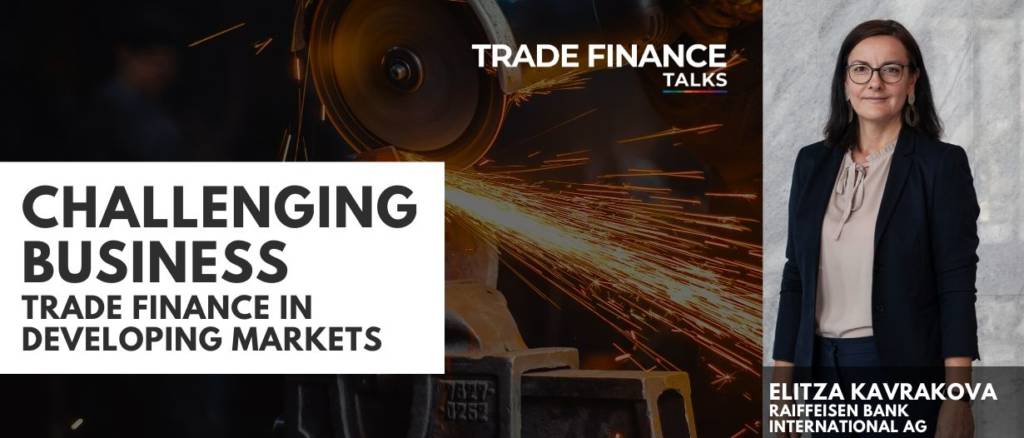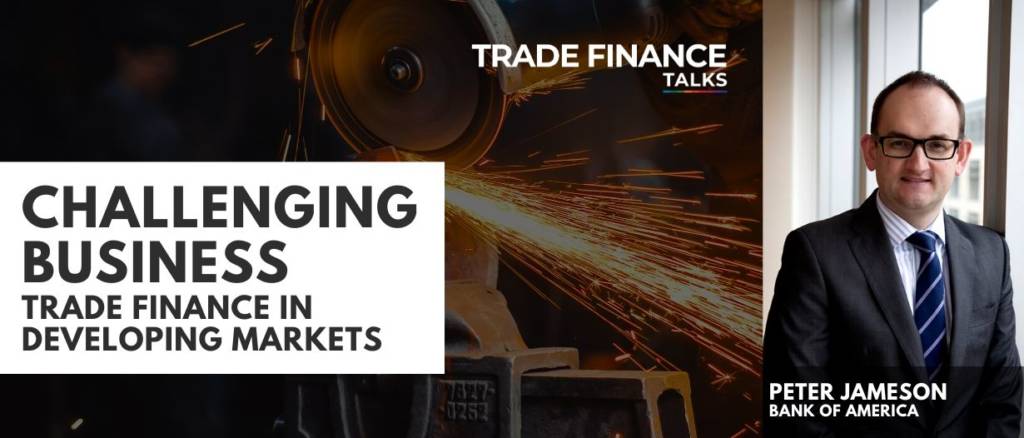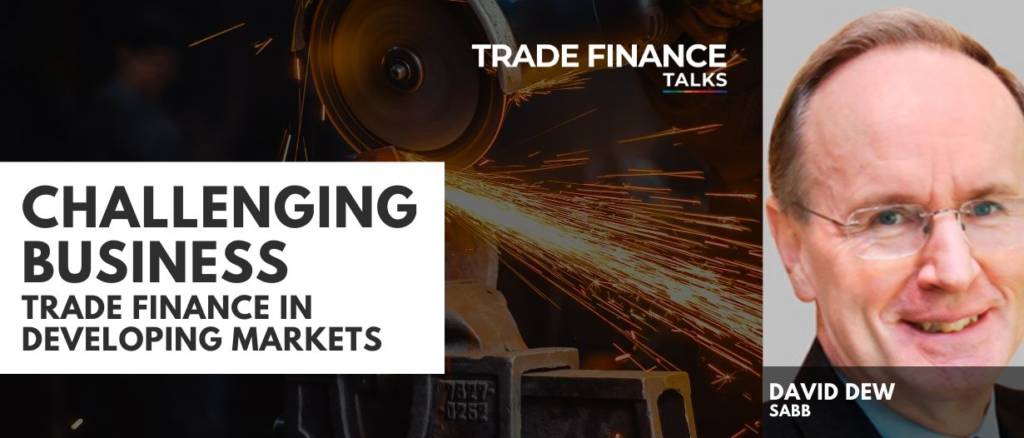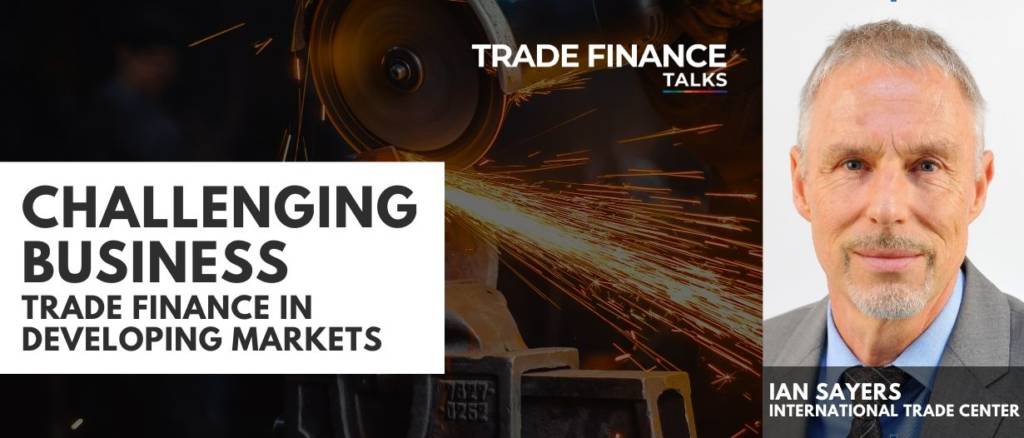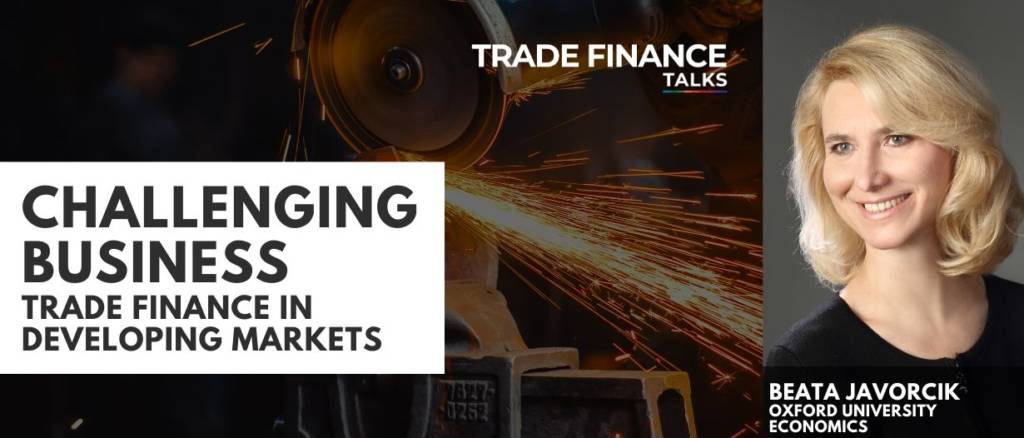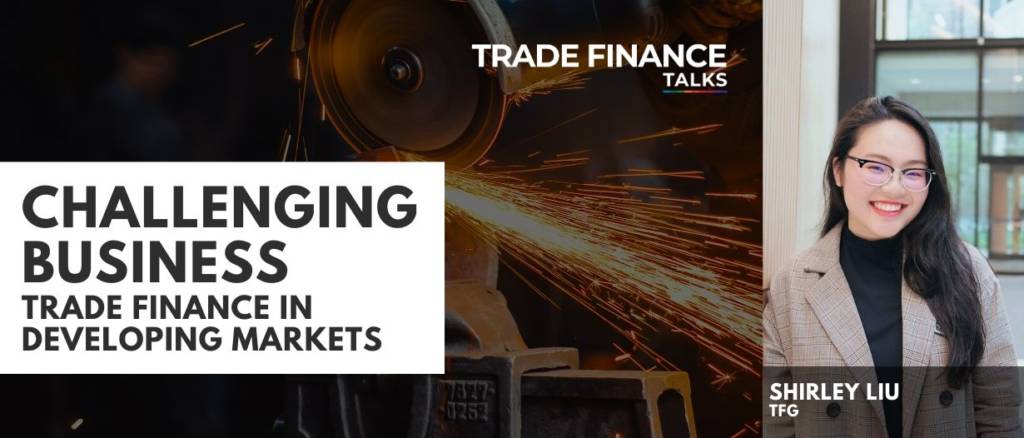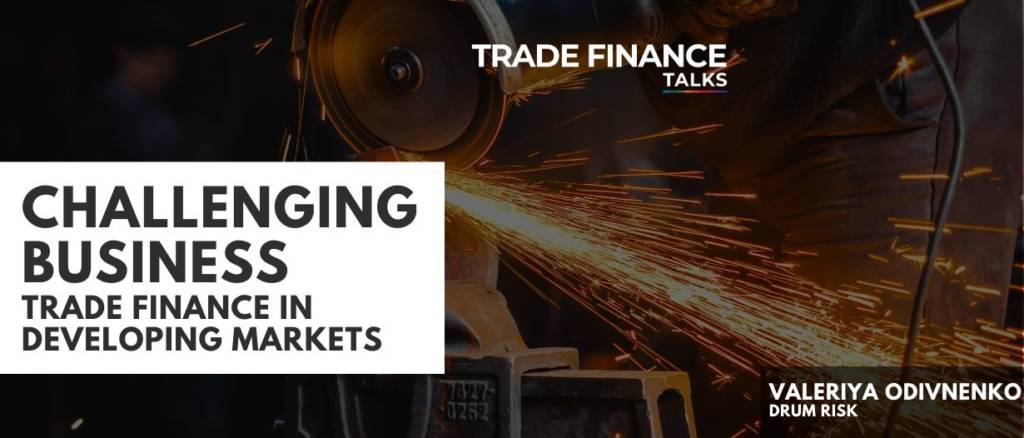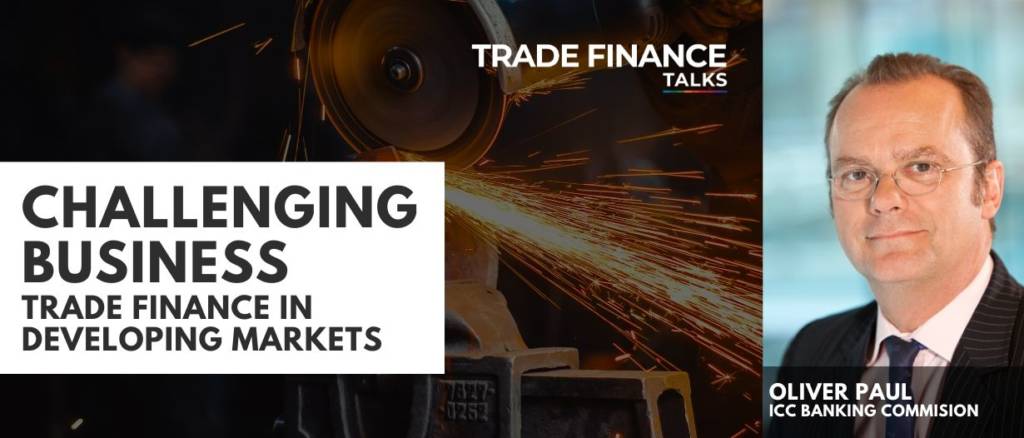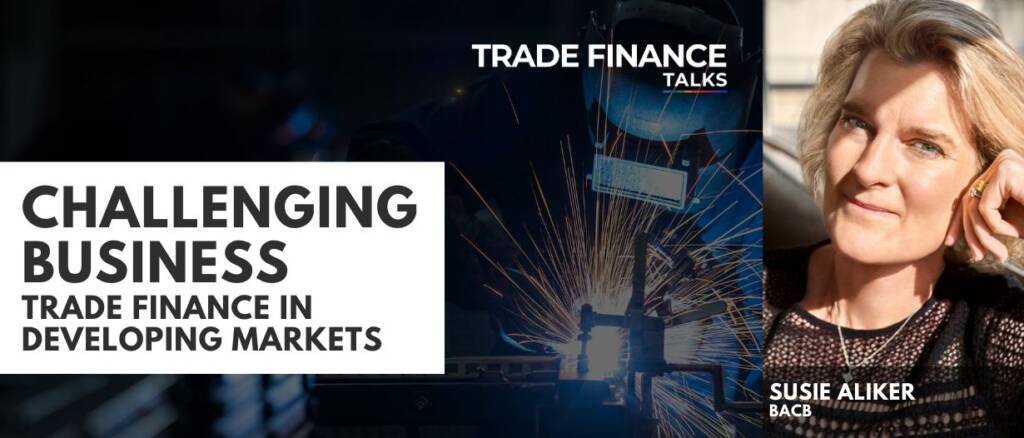TFG spoke to Global Trade Solutions CEO on the potential for DLT to help alleviate issues around port congestion in the shipping industry.
TFG spoke to Elitza Kavrakova, Head of Institutional Clients East, and Martina Zimmerl at Raiffeisen Bank International on trade finance in CEE
Macro uncertainty continues to be a key factor impacting growth as we continue to see a slowdown in trade flows. TFG spoke to BofA’s APAC team
With Vision 2030, Saudi Arabia has embarked on the boldest model of economic and social reform anywhere in the world. TFG spoke to SABB about this transformation in raising the Kingdom’s non-oil trade from 16% to 50% of GDP.
Enterprises in EDEs face enormous financing challenges to respond to new export market opportunities and grow their businesses sustainably.
TFG heard from Beata Javorcik at University of Oxford, discussing corporates addressing climate change.
Recent trade developments with the US and China had accelerated a trend of companies in the South-East Asian region
TFG heard from Drum Risk on some of the challenges inspection companies face in emerging markets.
Since 2000, global trade flows have trebled to US$18.5 trillion. Yet many challenges to the adoption of trade finance products remain.
Africa is home to 1.3 billion people spread across 54 countries, 20 of which have economies set to expand by an average of 5% or higher over the next five years. We spoke to BACB’s CEO about export opportunities in Africa.















